
Victoria University is a federated university, which forms part of the wider University of Toronto. Affiliated with the United Church of Canada, the university was founded in 1836 as a college in the Wesleyan Methodist tradition.

"In Flanders Fields" is a war poem in the form of a rondeau, written during the First World War by Canadian physician Lieutenant-Colonel John McCrae. He was inspired to write it on May 3, 1915, after presiding over the funeral of friend and fellow soldier Lieutenant Alexis Helmer, who died in the Second Battle of Ypres. According to legend, fellow soldiers retrieved the poem after McCrae, initially dissatisfied with his work, discarded it. "In Flanders Fields" was first published on December 8 of that year in the London magazine Punch. Flanders Fields is a common English name of the World War I battlefields in Belgium and France.

The University of Alberta is a public research university located in Edmonton, Alberta, Canada. It was founded in 1908 by Alexander Cameron Rutherford, the first premier of Alberta, and Henry Marshall Tory, the university's first president. It was enabled through the Post-secondary Learning Act. The university is considered a "comprehensive academic and research university" (CARU), which means that it offers a range of academic and professional programs that generally lead to undergraduate and graduate level credentials. It is ranked among the top public universities in Canada by major college and university rankings.
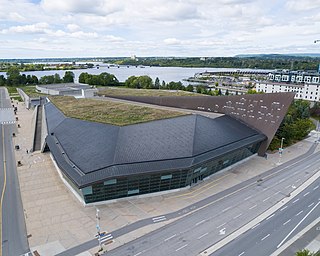
The Canadian War Museum is a national museum on the country's military history in Ottawa, Ontario, Canada. The museum serves as both an educational facility on Canadian military history and a place of remembrance. The 40,860 square metres (439,800 sq ft) museum building is situated south of the Ottawa River in LeBreton Flats. The museum houses a number of exhibitions and memorials, in addition to a cafeteria, theatre, curatorial and conservation spaces, as well as storage space. The building also houses the Military History Research Centre, the museum's library and archives.

A war memorial is a building, monument, statue, or other edifice to celebrate a war or victory, or to commemorate those who died or were injured in a war.

The Royal Canadian Legion is a non-profit Canadian veterans' organization founded in 1925. Members includes people who served in the military, Royal Canadian Mounted Police, provincial or municipal police, Royal Canadian Air, Army and Sea Cadets and direct relatives.
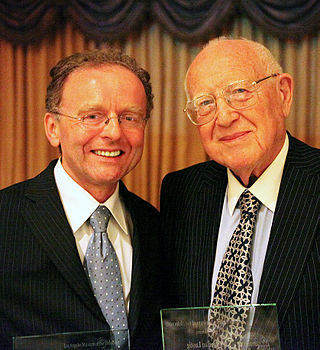
Gedenkdienst is the concept of facing and taking responsibility for the darkest chapters of one's own country's history while ideally being financially supported by one's own country's government to do so. Founded in Austria in 1992 by Andreas Maislinger, the Gedenkdienst is an alternative to Austria's compulsory national military service as well as a volunteering platform for Austrians to work in Holocaust and Jewish culture-related institutions around the world with governmental financial support. In Austria it is also referred to as Austrian Holocaust Memorial Service provided by the Austrian Service Abroad. The Austrian Gedenkdienst serves the remembrance of the crimes of Nazism, commemorates its victims and supports Jewish cultural future. The program is rooted in the acknowledgment of responsibility by the Austrian government for the crimes committed by National Socialism.
Historica Canada is a Canadian charitable organization dedicated to promoting the country's history and citizenship. All of its programs are offered bilingually and reach more than 28 million Canadians annually.
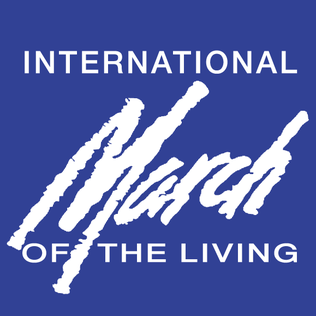
The March of the Living is an annual educational program which brings students from around the world to Poland, where they explore the remnants of the Holocaust. On Holocaust Memorial Day observed in the Jewish calendar, thousands of participants march silently from Auschwitz to Birkenau, the largest Nazi concentration camp complex built during World War II.
In April 1941, inmates at the Angler POW Camp near Neys Provincial Park on the north shore of Lake Superior planned the largest escape from a Canadian POW camp during World War II. The escape was the largest of its kind in Ontario, Canada.
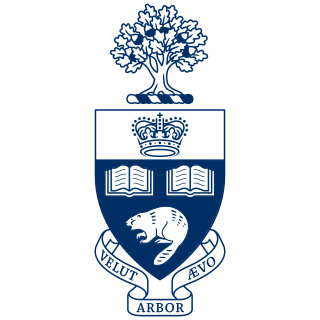
The University of Toronto is a public research university in Toronto, Ontario, Canada, located on the grounds that surround Queen's Park. It was founded by royal charter in 1827 as King's College, the first institution of higher learning in Upper Canada. Originally controlled by the Church of England, the university assumed its present name in 1850 upon becoming a secular institution. As a collegiate university, it comprises 11 colleges each with substantial autonomy on financial and institutional affairs and significant differences in character and history. The university maintains three campuses, the oldest of which is St. George, located in downtown Toronto. The other two satellite campuses are located in Scarborough and Mississauga.
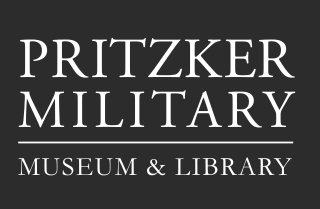
The Pritzker Military Museum & Library is a non-profit museum and a research library for the study of military history on Michigan Avenue in Chicago, Illinois. The institution was founded in 2003, and its specialist collections include material relating to Winston Churchill and war-related sheet music.

Lester Bowles "Mike" Pearson was a Canadian politician, diplomat, statesman, and scholar who served as the 14th prime minister of Canada from 1963 to 1968.

The National Field of Honour is a military cemetery for Canadian and Allied Veterans and their loved ones. It is located in Pointe-Claire, Quebec, Canada. It is operated by the Last Post Fund.

UBC School of Information is a graduate school at the University of British Columbia in Vancouver offering a Master of Archival Studies (MAS), a Master of Arts in Children's Literature (MACL), a Master of Library and Information Studies (MLIS), a DUAL Master of Archival Studies/Master of Library and Information Studies (MASLIS) and a Doctor of Philosophy in Library, Archival and Information Studies (Ph.D.). Founded in 1961 as the School of Librarianship, the iSchool is currently located in the Irving K. Barber Learning Centre. The school changed its name in 2018, but was previously known as the School of Library, Archival and Information Studies. UBC iSchool is an internationally ranked, multi-disciplinary school, ranked first in the world for graduate education in library and information management based on 2019 and 2020 QS ranking.

Kenneth A. Clarke serves as the executive director for Rescue Village, a humane society located in Geauga County, Ohio. He had previously served as the president and CEO of Pritzker Military Museum and Library in Chicago. He has also authored, published, edited and produced works as Kenneth Clarke and KC Clarke.

Witness: Passing the Torch of Holocaust Memory to New Generations is a large format volume, published by Canadian Second Story Press, inspired by a 2014 United Nations exhibit of reflections and images of Holocaust survivors and students who have traveled on the March of the Living since 1988. The exhibit and the book are intended to educate a new generation of students about the atrocities of the Second World War. In collaboration with March of the Living, an organization that spearheads visits to the Polish grounds where Nazi atrocities occurred, Toronto religious leader and Holocaust educator Eli Rubenstein compiled this book which includes an introduction from Pope Francis.
Lest We Forget (1935) was the first feature-length documentary film with sound to be made in Canada. Written, directed and edited by Frank Badgley, who was then the Director of the Canadian Government Motion Picture Bureau, and W.W. Murray, with music by Edmund Sanborn and narrated by Rupert Caplan. A compilation, 10-reel film recounting Canada’s role in the First World War, it is fast-paced and has a verbose narration but was well received by critics and audiences at the time. The Bureau was the precursor to the National Film Board of Canada.

Helen Richmond Young Reid CBE was a Canadian social reformer, focused on public health and women's education. In 1935 she was named a Commander of the Order of the British Empire for her life's work.
Dust is a one-act contemporary ballet about World War I, choreographed by Akram Khan, music by Jocelyn Pook and created for the English National Ballet. It marked the first time Khan worked with a ballet company, and premiered on 2 April 2014 at the Barbican Centre, London.















